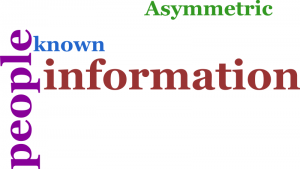The President of Uganda has just fi nished appointing a 76-member cabinet and I must confess I know not more than five or so of the appointees in that cabinet. So I must start by apologizing to them if my thoughts offend them! On reading the list, I was thrown back to my heady days as a student of finance and economics and the principle of moral hazard and adverse selection.
nished appointing a 76-member cabinet and I must confess I know not more than five or so of the appointees in that cabinet. So I must start by apologizing to them if my thoughts offend them! On reading the list, I was thrown back to my heady days as a student of finance and economics and the principle of moral hazard and adverse selection.
Moral hazard relates to having to take decisions about things that we do not have enough information about. Moral hazard arises because an individual or institution does not take the full consequences and responsibilities of its actions, and therefore has a tendency to act less carefully than it otherwise would, leaving another party to hold some responsibility for the consequences of those actions (In this case the tax payer). And we arrive at that junction of why I was struck by this principle on reading the cabinet list. Suppose in the newly appointed cabinet, there was one appointee named Samuel Sejjaaka. And suppose that he were appointed to the defence portfolio. What knowledge would he have about defence, and what would be the basis of the decisions he would take about defence? If he takes risky or bad decisions, he does not pay the price for those bad decisions. The taxpayer does.
Moral hazard then leads to the problem of . Because of access to a different set of information (in economics this is called information asymmetry) your Minister, Samuel Sejjaaka, is bound to potentially make bad decisions because he is not able to determine whether the information set available to him is good or bad. To make practical sense of this, remove my name. Insert the name of any of the appointees and apply the same questions. You arrive at the question that what experience do the appointees bring to their appointments? Imagine that you are given the trade or justice portfolio. You have never seen a set of import forms or drafted a legal instrument in you long and distinguished career. You have never expereinced the vagaries of trade or the exigencies of justice. But now you must make decisons on behalf of the realm and its subjects. Our expectations of the new cabinet are high, but if you are disappointed, you now know why you will be disappointed. If an appointee succeeds, then we must be delighted and happy for them because the management of public affairs is not as easy as writing this article!
Ahhhh! Sigh. It is a tough world but the disparity between what happens and what ought to happen is why we academics exist! So that we can carry out this kind of mental gymnastics – academic thought. It is the usual problem of allocation! More next time but I must catch my flight!



